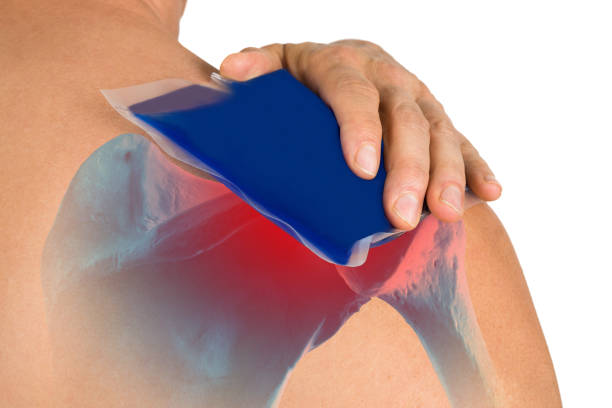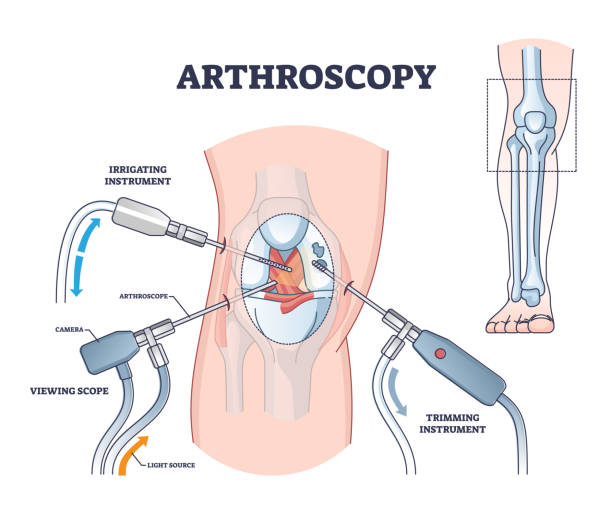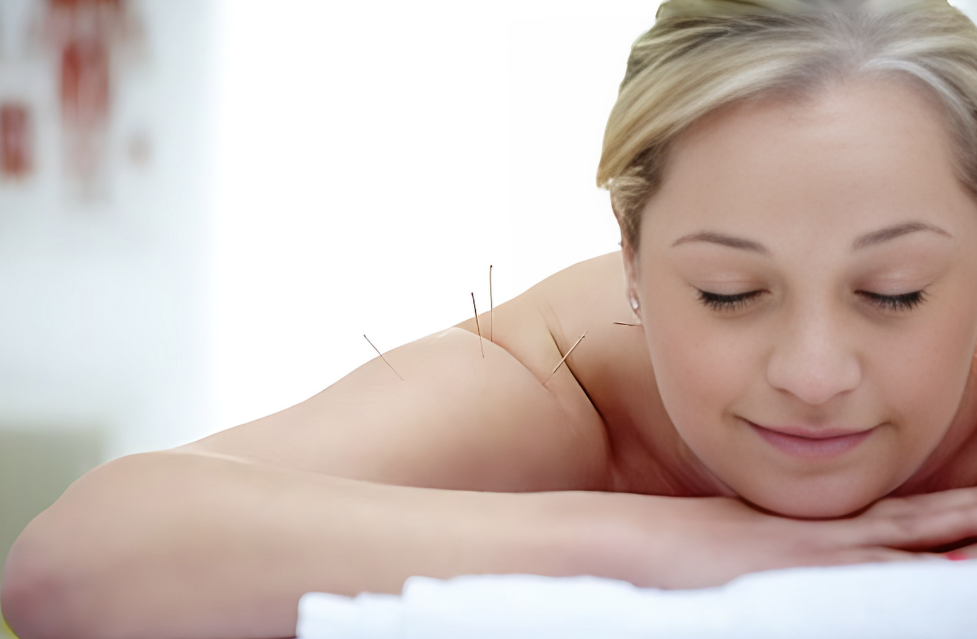Alternative Treatments
Effective Natural Remedies for Frozen Shoulder
Frozen shoulder, also known as adhesive capsulitis, is a severe ailment that causes stiffness, discomfort, and limited range of motion in the shoulder joint. While traditional therapies for this ailment include physical therapy, corticosteroid injections, and surgery, many people prefer natural remedies to relieve symptoms and promote healing for frozen shoulder.
This article looks at the natural remedies for frozen shoulders that have received attention for their ability to ease pain, reduce inflammation, and enhance shoulder mobility. From particular exercises and stretches to dietary changes, herbal remedies, and alternative therapies, these natural treatments provide individuals with a comprehensive approach to managing frozen shoulders and improving their quality of life without relying entirely on conventional methods. Individuals suffering from frozen shoulder can receive vital insights into complementary treatments that can help them heal and effectively restore shoulder function by researching the evidence, mechanisms, and advantages of these natural remedies.

Understanding Frozen Shoulder
Frozen shoulder, often called adhesive capsulitis, is a disorder that causes discomfort and stiffness in the shoulder joint. It is a common disorder that affects people of all ages, but it occurs more frequently in women than in males.
Stages of Frozen Shoulder
Frozen shoulder normally goes through three stages: freezing, frozen, and thawing. During the freezing stage, the shoulder gets more painful and inflexible. This stage can span a few weeks or months. The frozen stage is distinguished by a decrease in pain while the shoulder remains stiff. This stage might persist for four to six months. Finally, during the thawing process, the shoulder gradually regains its range of motion. This stage might endure for six months to two years.
Risk Factors and Causes
The precise etiology of frozen shoulder is unknown, although there are various risk factors that can enhance a person’s likelihood of getting the illness. Diabetes is among the most common risk factors for a frozen shoulder. People with diabetes have a higher risk of developing frozen shoulders than people without diabetes. Menopause is another risk factor for a frozen shoulder because women are more likely to get it after menopause.
Other risk factors for frozen shoulder are:
- Frozen shoulder is more common among adults over the age of 40.
- Immobilization: People who have had their shoulders immobilized for an extended length of time, such as following surgery or an injury, are more likely to develop frozen shoulders.
- Certain medical conditions: People with thyroid issues, heart disease, and Parkinson’s disease are more likely to have frozen shoulders.
To summarize, recognizing the stages of frozen shoulder and the risk factors that increase a person’s chances of acquiring the illness is critical. Knowing these variables allows individuals to make efforts to prevent the development of a frozen shoulder or seek treatment early.

Conventional and Natural Remedies
A frozen shoulder is a painful ailment characterized by stiffness and limited movement in the shoulder joint. There are various conventional and natural remedies available to help relieve the symptoms of a frozen shoulder.
Physical Therapy and Exercise
Physical therapy and exercise are frequently suggested as the first line of treatment for a frozen shoulder. These treatments can assist in enhancing range of motion, alleviate discomfort, as well as avoid additional stiffness. Stretching, strength training, and range-of-motion exercises are all possible workouts.
Alternative Therapies
Acupuncture and other alternative therapies may potentially be beneficial in the treatment of frozen shoulder. Acupuncture involves inserting tiny needles into precise places on the body to promote healing. This therapy has been demonstrated to alleviate discomfort and enhance the range of motion in frozen shoulder patients.
Dietary Supplements and Herbal Remedies
Dietary supplements and natural therapies may also help alleviate frozen shoulder. Magnesium supplements can help reduce inflammation and enhance muscle function, and turmeric’s natural anti-inflammatory effects help alleviate pain and stiffness. Other herbal medicines, such as ginger, may be useful in alleviating frozen shoulder.
It is crucial to emphasize that, while natural remedies can be useful in treating frozen shoulder, they should not be utilized instead of traditional medical treatment. Patients should always contact their physician before beginning any new treatment regimen.

Home Remedies and Lifestyle Changes
Several home treatments and lifestyle adjustments might help relieve the symptoms of a frozen shoulder. These cures are simple to apply and may be done from the comfort of your own home.
Heat and Cold Therapy
Applying heat or ice to the affected area might help relieve pain and inflammation. To minimize swelling, use ice for 20 minutes at a time, multiple times each day. Heat therapy can be applied for 15-20 minutes at a time with a hot water bottle or heating pad. Alternating between heat and cold therapy can be effective.
Stretching and Strengthening Exercises
Stretching and strengthening activities can assist in increasing the range of motion and alleviate pain. Simple stretching exercises include the pendulum stretch, cross-body reach, and towel stretch. Strengthening exercises can be performed with resistance bands or weights. It is critical to begin with small weights and progressively raise the weight as the shoulders strengthen.
Other lifestyle modifications that can assist include keeping excellent posture, avoiding pain-causing activities, and getting adequate sleep. Epsom salt baths and DMSO (dimethyl sulfoxide) lotion may also help alleviate pain and inflammation. Cold showers can also help reduce inflammation.
It is crucial to remember that these treatments are not intended to replace medical care. If symptoms persist or worsen, you should seek medical assistance.

When to Seek Professional Help
If you are having severe pain and stiffness in your shoulder, you should seek medical attention. A doctor can diagnose a frozen shoulder and rule out any other diseases that could be causing your symptoms.
Diagnosis and Medical Interventions
A doctor will often diagnose a frozen shoulder based on a physical examination and medical history. They may also request imaging tests, such as X-rays or MRI scans, to rule out other possibilities.
If your symptoms are severe, your doctor may prescribe medications such as pain relievers or anti-inflammatory agents. Steroid injections can also be used to relieve inflammation and increase movement.
Surgical Options and Recovery
In some circumstances, surgery may be required to treat a frozen shoulder. Arthroscopic surgery is a minimally invasive treatment in which a tiny camera is inserted into the shoulder joint to remove scar tissue and increase mobility.
Recovery from frozen shoulder surgery can take months and may require physical therapy. Infection, hemorrhage, and nerve injury are among the unusual complications of surgery.
Conclusion
Finally, researching natural remedies for frozen shoulder provides people with a comprehensive strategy for controlling this distressing illness and improving shoulder function. While traditional therapies remain crucial, the natural cures presented in this article provide individuals with additional tools for pain relief, inflammation reduction, and mobility improvement without relying primarily on medicines or intrusive procedures.
These natural remedies, which range from focused exercises and stretches to dietary changes, herbal cures, and alternative therapies, allow people to have an active role in their recovery process. Individuals who incorporate these natural therapies into their treatment programs under the supervision of healthcare specialists might improve their chances of attaining relief from frozen shoulder and restoring full shoulder function. Finally, a complete approach that combines conventional and natural remedies show promise for improving outcomes and restoring the quality of life for patients suffering from this difficult condition.
Trusted Health, Wellness, and Medical advice for your well-being


